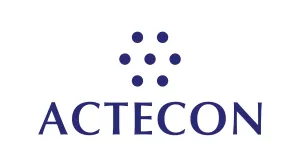There are several ways triggering the Turkish Competition Authority ("TCA") to open an inquiry. The procedure may begin as a result of the TCA receiving a complaint, a leniency application or otherwise being notified of an alleged violation, or the TCA acting on its own initiative to open an inquiry. The TCA can do this in two ways - it can technically either open a preliminary investigation or a full-fledge investigation (while the former usually takes one to two months, the latter takes six months to one year).
In practice, however, the TCA generally first initiates a preliminary investigation rather than a full-fledged investigation so that it can assess whether a full-fledged investigation would at all be necessary. This is primarily because an investigation requires greater amount of time and resource, both of the investigated firms and the TCA. If, at the end of the preliminary investigation term, the TCA finds that the practices are not anti-competitive, it decides not to initiate a full-fledged investigation. Looking at the 2016 statistics1, only 20 out of 83 preliminary investigations by the TCA turned into a full-fledged investigation and this number, as of January 5, 2018, is 9 out of 47 for 20172.
Recent developments however indicate that in the future we may face greater number of preliminary investigations turn into full-fledged ones. This is because, in recent times, there has been an increasing number of full-fledged investigations that shared a common ground on which they have first been initiated by the TCA. In 2017, the TCA started nine investigations3 (out of 26 investigations4 in total) merely because the TCA's decisions had been overruled by the court of appeal (either Ankara Administrative Courts or the State of Council). Seven of these TCA decisions, which have been overruled by the court of appeal, had not found any anti-competitive practices at the preliminary investigation stage, without the TCA moving forward with a full-fledged investigation to make a more thorough assessment of the cases. In two of these preliminary investigations, without moving to a full-fledge investigation phase, the TCA delivered its opinion to cease the practices in question, which were evaluated as potentially anti-competitive5.
In the appeal cases of these decisions, however, courts underlined that the TCA should have initiated a full-fledged investigation to better evaluate whether the practices it was analysing amounted to a competition violation. As a result of these recent court decisions, the TCA is from now on expected to refute all doubts regarding the allegations in the preliminary investigation stage and, in case any doubt remains, to start a full-fledged investigation so that it avoids its decisions being overruled in the appeal phase.
This trend developed by the recent court of appeal decisions will surely have an impact on the TCA's workload, and more importantly, on the way the TCA will approach cases from the start. Therefore, in the upcoming years, there may be relatively more full-fledged investigations and/or the TCA may be more investigative in the preliminary investigation process, even where it does not see a strong or prima facie evidence of wrongdoing.
Footnotes
1 Please refer to the TCA's Annual Report for 2016. The statistics take into consideration the preliminary and full-fledged investigations that are closed during 2016.
2 The reasoned decisions of the TCA are typically published within 3-4 months as from the decision date. Therefore, the number of the preliminary investigations/full-fledged investigations in 2017 may not represent the entirety of the inquiries covered during the year.
3 Investigations against the fuel distributors, leading pharmaceutical company Roche, independent marketing analytics company Diye Danışmanlık, leading software company Microsoft, a top-tier commercial vehicle producer Karsan, a significant player in the meal coupon/card sector Sodexo, a major player in the port management market Zeyport, leading internet related services provider Google and a top-tier dashpot producer Maysan Mando.
4 Announced as of January 5, 2018.
5 Before establishing that Articles 4, 6 and 7 of the Competition Law are violated, the Board is entitled to inform in writing the undertakings concerned of its opinions about how to terminate the violation.
The content of this article is intended to provide a general guide to the subject matter. Specialist advice should be sought about your specific circumstances.



